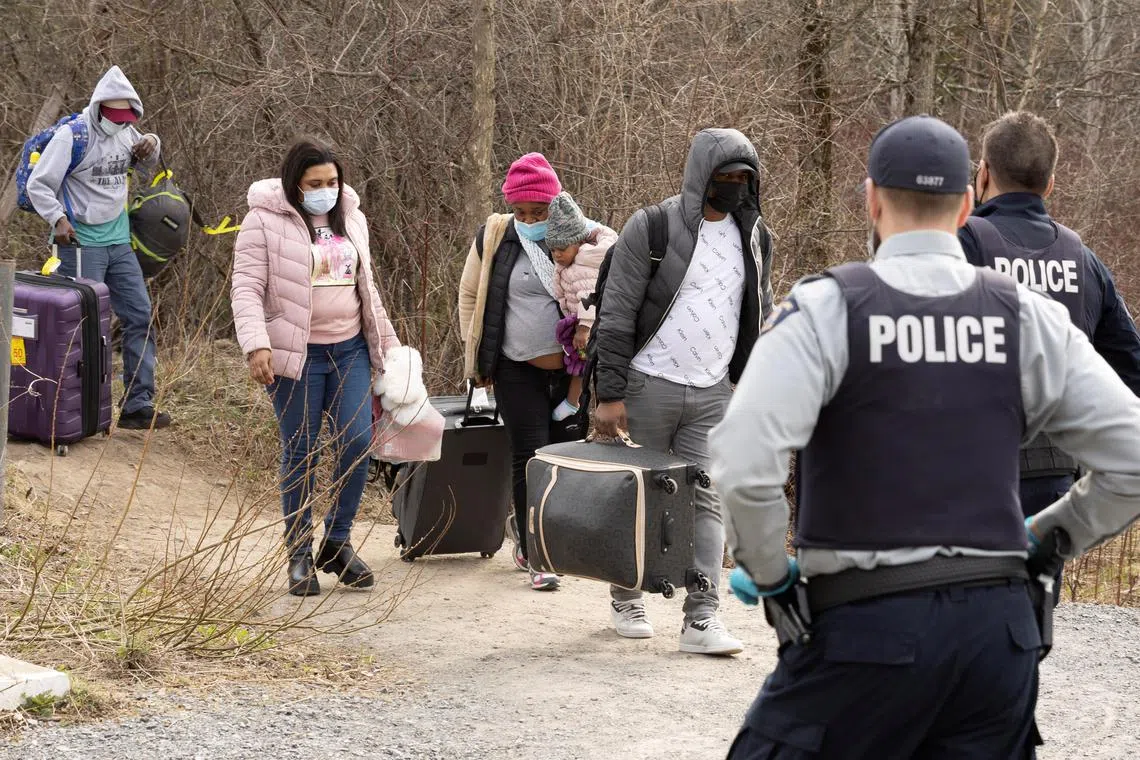Canada expands aerial border surveillance to appease Trump
Sign up now: Get ST's newsletters delivered to your inbox

Mr Justin Trudeau has been pledging stronger border measures since US President-elect Donald Trump threatened tariffs on Mexico and Canada unless they did so.
PHOTO: REUTERS
OTTAWA – Canada is deploying what it calls an “aerial intelligence task force” as part of a new C$1.3 billion (S$1.23 billion) plan to address US President-elect Donald Trump’s concerns about migrants and fentanyl flowing across the northern border.
The Royal Canadian Mounted Police (RCMP) will operate the task force, made up of helicopters, drones and mobile surveillance towers.
It is one of multiple measures unveiled by the Canadian government on Dec 17 in an effort to avert Trump’s threat of 25 per cent tariffs on all goods
The announcement comes a day after the country’s finance minister, Ms Chrystia Freeland, abruptly resigned
She was replaced by Mr Dominic LeBlanc, the public safety minister who released the border plan on Dec 17.
“Canada takes pride in our border and law enforcement agencies that protect our communities and support our economy day in and day out,” Mr LeBlanc said in a statement. “They also expect their government to support them in their ability to do that important work.”
The funding was announced in the government’s budget update on Dec 17.
Mr Trudeau has been pledging stronger border measures since Trump threatened tariffs on Mexico and Canada unless they did so – even though the issues at the northern crossing pale in comparison to those at the southern one.
The plan also involves expanding the intelligence-collection capacity of the RCMP and the Communications Security Establishment, the cyber-security agency.
The government plans to increase fines and criminal penalties for money laundering and create a task force on the issue involving law enforcement and the financial sector.
It also aims to increase information sharing between Canadian and US officials, as well as between the federal government and provinces.
Mr Trudeau’s government said it would propose to the US the creation of a new “North American Joint Strike Force” to target transnational organised crime.
RCMP commissioner Mike Duheme explained that the “strike force” would entail partnering the US to develop officers and law enforcement partners who specialise in fentanyl.
They would work both domestically and in international source countries for the deadly drug to disrupt its illegal trade, he said.
Immigration Minister Marc Miller announced changes to end a practice known as “flagpoling”, which involves a temporary resident leaving Canada and immediately returning to a point of entry to get immigration services.
He also said the government planned to expand its ability to cancel, change or suspend immigration documents and to stop accepting new applications.
The government will also deploy artificial intelligence and imaging tools, and train new canine teams, to further help detect illegal drugs before they enter Canada.
It too plans to create a new unit within the country’s health department to stop imports of precursor chemicals and accelerate the regulatory process for banning those materials to six months from three years.
Mr LeBlanc said he had shared the plan with Trump’s incoming border czar Tom Homan and was “encouraged” by that conversation.
“I’m confident that as we continue to work with our American partners, they’ll see that our resolve is absolute,” Mr LeBlanc said, adding that Canada and the US are on the same page on border security.
“There’s no daylight in terms of the objectives we share with the incoming administration.” BLOOMBERG


